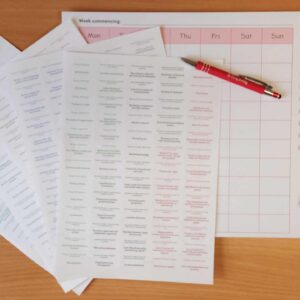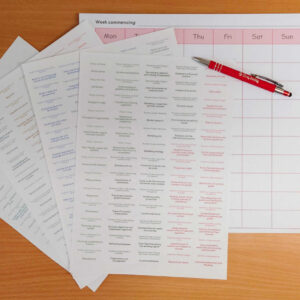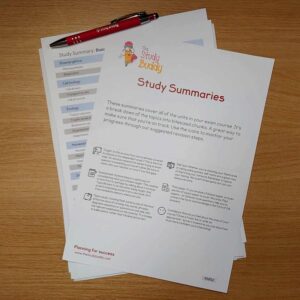
The Praise Paradox: How Much is Too Much?
The words we use at the dinner table carry weight. More than just encouraging action, they can have a lasting impact. But is there such

Is your GCSE or A-Level 2020 student still revising? If their grades are important to them, maybe they should.
Just like everything to do with GCSEs and A-levels this year, how students’ grades will be determined is far from ideal. But what we know of the process is this:
Teachers have graded their students for all subjects. That has to be evidence based. In some cases we understand SATs results are fed in, all to indicate how students might have done. Of course those students who would have revised hard and turned it around are massively impacted here. Getting a 3 in a mock is going to make it hard to give them a 7.
Grading isn’t actually merit based. There is a broad proportion that will receive grades in any year. That’s why you don’t know what percentage will get you a 6, for example. It’s relative to how the population performs. With this in mind Ofqual are going to have to work some epic magic to ‘force’ this year into a normalised distribution of grades – ie the ‘right’ proportion gets 9s, 8s, etc.
How they will actually go about this is anyone’s guess – and I’m quite a data nerd! Think of the variables – should selective schools get a certain number of ‘3s’. Do under-performing Ofsted schools get the same trust in their results? Should it be on past performance? The last one would make sense, however the past not necessarily and indicator of future performance. And let’s not forget there’s only one full year of data for the new number system. Hardly compelling evidence if you’re future-casting.
In the usual way, as if you’d sat the exams, your teens will wake to find out what they got. Except they may not feel that this has had anything to do with them.
There is an appeal if the calculation wasn’t applied correctly. But, with black box adjustments made to hit the curve, it is difficult to see how that will work if you “believe” you would have done better. And an argument that goes along the lines of “But I would have revised really hard after Easter” won’t hold any water.
For many getting what they need for their next step is all they are worried about. But for some, demonstrating what they could have got is important. In those cases the only real answer is likely to lie in an autumn resit. Ofqual have today announced that all subjects will have resit exams, not just the core ones.
On the face of it, this is good news. But the reality, of course, is that many students would have put the books away following the cancellation and tried to put it behind them.
It’s going to be tough to find the motivation and discipline, but for those students who care what their grades are, they should really be setting aside time to carry on with some study – imagine that any autumn exam was the real one.
Our podcast series has some great episodes with experts that might help you find a way to talk to, and support, your teen through this. Especially I’m thinking of Coaching with Jonathan Peach, Positivity with Dr Andy Cope.
And please do get in touch if you think there is anyway we might be able to help support you or your teen.






Our GCSE Special bundle is everything you need to get going quickly and easily.

The words we use at the dinner table carry weight. More than just encouraging action, they can have a lasting impact. But is there such

You can’t out-supplement a bad diet, but you can certainly optimize a good one. From the sleep-restoring power of Iron to the brain-boosting benefits of

If your teen’s revision plan didn’t quite survive half-term, you aren’t alone. But dwelling on a “failed” week is the fastest way to derail the
An offer code will be sent to you. By subscribing to our newsletter you agree to our Terms and Conditions and Privacy Policy. You can unsubscribe at any time.
Thank you for signing up! Check your inbox soon for special offers from us.
In the meantime, you can use the code Welcome5

